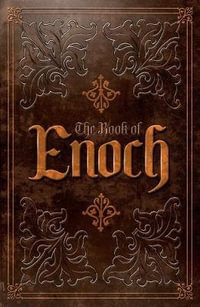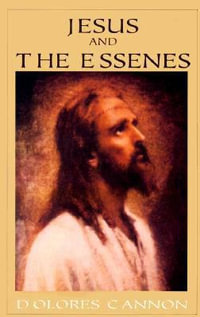Edited by David Platt, Daniel L. Akin, and Tony Merida, this new commentary series, projected to be 48 volumes, takes a Christ-centered approach to expositing each book of the Bible. Rather than a verse-by-verse approach, the authors have crafted chapters that explain and apply key passages in their assigned Bible books. Readers will learn to see Christ in all aspects of Scripture, and they will be encouraged by the devotional nature of each exposition. Exalting Jesus in Ezra-Nehemiah is written by Jim Hamilton.
Industry Reviews
James Hamilton's newly published commentary on exalting Jesus in Ezra and Nehemiah is both scholarly and accessible, text-centered and warm-hearted--all of which comes through even in this brief interview. As we at The Gospel Coalition are preparing for our national women's conference this summer in which the plenaries will take us right through the book of Nehemiah, I'm especially delighted by the timely arrival of this commentary! Even as we dig into great helps like these, we can take to heart Hamilton's reminder of the crucial importance of reading and re-reading the biblical text. His comments help inspire us to do that with increased attention and fervor. * * * * * * * * * * In your introduction, rather than jumping right into the books, you ask your reader to imagine God building a theater. How does that picture help establish your aims for this commentary on Ezra and Nehemiah? Ezra and Nehemiah can be difficult because the authors assume their audience will know the backstory and the importance of the places in which these books are set. That introduction was my attempt to summarize the storyline that leads up to Ezra-Nehemiah in a way that captures the significance of the settings. We can put Shakespeare and Calvin together on this point: all the world's a stage, and the stage stands in the theater of God's glory. To understand Ezra-Nehemiah we have to understand their setting and their contribution to the wider narrative. These authors are assuming their audience will plug their books into the ramshackle narrative begun in earlier Scripture, and they assume their audience will ponder the significance of Israel having returned to the land. Shakespeare's plays were enacted in the Globe theater as he held the mirror up to nature. The biblical authors set their stories in the real world, and they tell its true story. God built this theater "as a plan for the fullness of time, to unite all things in [Christ]. . . . so that through the church the manifold wisdom of God might now be made known to the rulers and authorities in the heavenly places" (Eph. 1:10; 3:10). The temple rebuilding and rituals are so central in both these books. Could you offer a few summary comments about how we believers today, with no temple in sight, should relate to all these passage about the temple? This is a fascinating aspect of the Bible's theology. After the exodus, Israel used the plundered wealth of Egypt to build the tabernacle. David was not allowed to build the temple, but he set Solomon up to do it by amassing great plunder from the Gentiles he conquered (1 Chron. 29:2-5). In Psalm 68, David brings the building of tabernacle and temple together as he describes the way the building of the temple on Mount Zion means that "Sinai is now in the sanctuary" (Ps. 68:17), then speaks of the use of enemy plunder in the building of God's dwelling place (68:18). In keeping with this pattern, Ezra 1-6 describes how the pagan kings Cyrus and Darius used their wealth to pay for the rebuilding of the temple (Ezra 1:1-11; 6:1-15). God repeatedly builds his dwelling place with enemy plunder. Jesus, scion of David, came as a carpenter, a builder, asserting that he would build his church (Matt. 16:18). When Paul describes how Christ built the church, he says that Jesus built the church the same way Moses built the tabernacle and Solomon built the temple: with the plunder of the enemy. Paul quotes Psalm 68:18 in Ephesians 4:8 to capture this point, as he describes the way that Jesus came down, bound the strong man, plundered his house, then "gave the apostles, the prophets, the evangelists, the shepherds and teachers, to equip the saints for the work of ministry" (Eph. 4:11-12). And the body of Christ is the temple of the Holy Spirit (1 Cor. 3:16). So under the old covenant in the days of Ezra-Nehemiah, God dwelt in the temple by his Spirit, and the focal point of God's cause in the world was his dwelling place. Now that Christ has inaugurated the new covenant and the church is the dwelling place of God by the Spirit, the focal point of God's cause in the world is the church. Believers today can be encouraged to be as zealous for the upbuilding of the church as Ezra and Nehemiah were for the rebuilding of temple and wall. You're not afraid to use leaders like Zerubbabel, Ezra, and Nehemiah as examples to learn from--and yet you consistently set the text in its larger redemptive context. How have you learned to balance these various approaches? I hope I've learned this approach from the biblical authors themselves! I've also had good teachers, like Tom Schreiner, who helped me see it. Paul uses Israel as a negative example ("we must not . . . as some of them did") in 1 Corinthians 10:6-10, concluding in 10:11, "Now these things happened to them as an example, but they were written down for our instruction." James uses Old Testament figures as examples, exhorting his audience to steadfast patience: "As an example of suffering and patience, brothers, take the prophets, who spoke in the name of the Lord. Behold, we consider those blessed who remained steadfast. You have heard of the steadfastness of Job" (James 5:10-11, cf. 5:7-9). Peter calls believers to follow in the footsteps of Jesus (1 Pet. 3:21) as they endure unjust suffering. Across the Old Testament we see many key figures whose experience of unjust suffering anticipated Jesus, who fulfilled the pattern of the righteous sufferer. So we have to read the biblical narratives as their authors intended them to be read: they contribute to the grand narrative that begins at creation and consummates in new creation, and they are "written for our instruction, that through endurance and through the encouragement of the Scriptures we might have hope" (Rom. 15:4). What do you especially love about the books of Ezra and Nehemiah? That in his weeping over the sin of the people (Ezra 10:1), Ezra anticipates the one who would weep over Jerusalem (Luke 19:41). That in his cleansing of the temple (Neh. 13:8-9), Nehemiah anticipates the one who would do that too (Mark 11:15-19). I love that Ezra--who holds an important post in the Persian Empire--sets his heart to study, do, and teach the Torah of Yahweh (Ezra 7:10). I love that Nehemiah is a man of prayer saturated in Scripture, that his inspiring call, "Come, let us build the wall!," results in the people strengthening "their hands for the good work" (Neh. 2:17-18). I love the way he labors with sword and trowel, not stopping for a change of clothes (4:17-23); the way he stands fast against Sanballat and Tobiah; and the way he so clearly loves God and God's purposes more than his own life. Your commentary is titled Exalting Jesus in Ezra and Nehemiah. How would you sum up the way Jesus shines forth from these two Old Testament narratives? Here I'd draw attention to the way that Jesus is the issue below the surface even when he isn't the issue on the surface. Two examples, one from each book: When the people are intermarrying with idolaters in Ezra 9, Ezra says in 9:2 "the holy race [lit. seed] has mixed itself with the peoples of the lands." The preservation of the purity of the seed matters because the Messiah matters. These people have kept genealogies to trace the line of descent from the couple who heard God's words about the seed of the woman who would bruise the serpent's head way back in Genesis 3:15. That line has come down through Abraham, Judah, and David, and if the people intermarry with idolaters the line of descent is endangered. If the line of descent fails, the Messiah will not come, the world will not be saved, and there will never be Christmas. Even though the book of Ezra doesn't spell everything out, we can connect the dots: he is passionate about the purity of Israel because he knows the world's desperate need for Israel's Messiah to accomplish redemption. The same dynamic is at work in Nehemiah's concern for the building of the wall. Nehemiah cares about the wall because the wall will protect the people. Nehemiah cares about the people because God loves them, because God redeemed them, covenanted with them, and promised to raise up the one who would crush the oppressor for them. If there's no wall, the people will be oppressed, which could lead to them being dispersed, either because they all flee or because they get carried off captive. But if there is a wall, they have protection from enemies without and can enforce the law within. And if they can stand against enemies and live in accordance with Torah, they can preserve the line of descent that flows down from David to Jesus. In the mystery of God's providence, we have the efforts of Ezra and Nehemiah to thank for our Savior's birth, life, death, and resurrection. God saved us through Jesus, and we see God's sovereignty in tension with human responsibility as we consider how Ezra and Nehemiah worked to ensure that there would be a Joseph and a Mary so there could be a Jesus. They didn't know that would be his name, but it was concern for him, hope for him, that drew Ezra and Nehemiah back to the Scriptures, kept them on their knees, compelled them to call the people to repent, and caused them to seek the rebuilding of people and wall.
We're looking forward to TGCW14, our women's conference, in which the plenary sessions will take us right through the book of Nehemiah with expositional teaching. What words would you have for both teachers and listeners as we all prepare?
Imitate Ezra and Nehemiah! Both men had a deep and rich understanding of earlier Scripture, of the Bible's big story and their place in it. Both men understood their role in the story. Both were men of prayer. Few things better prepare us for hearing the Bible taught than reading and re-reading the passages that will be exposited. And what could help our study of God's Word more than asking the Lord himself to open our eyes to see wonderful things in his law?
Read the Bible. Pray for God's help. Understand your role in the unfolding drama. Enjoy!
Kathleen Nielson serves as director of women's initiatives for The Gospel Coalition. She holds MA and PhD degrees in literature from Vanderbilt University and a BA from Wheaton College. Author of the Living Word Bible studies, she speaks often at women's conferences and loves working with women in studying the Bible. She shares a heart for students with her husband, Niel, president of Covenant College from 2002 to 2012 and now leading an enterprise developing resources for Christian schools around the world. Confidence in the truth and power of God's written Word should prompt pastors and teachers not only to say worthy things about the Bible, but also to preach and teach with faithfulness from the Bible. The Christ-Centered Exposition series helps us to do just that. Theologically rock solid, this series is a clear, practical, and useful guide to the kind of biblical exposition that will please the Lord and build up his church.
Timothy George
Founding dean of Beeson Divinity School of Samford University and general editor of the Reformation Commentary on Scripture
There is nothing more helpful to a pastor than resources that are biblically faithful and pastorally applicable. The Christ-Centered Exposition series hits the bull's eye. I highly recommend it for anyone who wants to understand the Scripture in its context in order to apply it in real life.
Darrin Patrick
Lead pastor of The Journey, St. Louis, and co-author of For the City
David Platt, Tony Akin, and Tony Merida have launched a series that will give a rising generation of pastors a tremendous resource for seeing how all the Scriptures prepare for and proclaim the ministry of Christ. The pastoral focus, the preaching tools and the redemptive insights make this a series of immediate use and great aid to pastors who want to equip their people to serve the Lord in the joyous power of the gospel - rather than in the vain pressures of servile dread or slavish fear.
Bryan Chapell
President Emeritus, Covenant Seminary and Pastor, Grace Presbyterian Church
James Merrill Hamilton's contribution to the Christ-Centered Exposition Commentary series shines as a bright and clear star among all the books that seek to help explain Ezra and Nehemiah. Often overlooked or employed only when a church is undergoing a building program, Ezra-Nehemiah is treated like what is negatively termed the "fly-over" portion of the country--many are glad it is there but have no real reason or desire to visit. However, Hamilton's work shows that in these books dwell the heartland of the story of the exiled people of God. This is one commentary worth reading cover to cover and, as you do, you will smile as you see the Lord Jesus shining forth.
Jason G. Duesing, Ph.D.
Vice President for Strategic Initiatives and Assistant Professor of Historical Theology, Southwestern Baptist Theological Seminary.
It's one thing to know Bible stories; it's another to know the story of the Bible. It's one thing to be aware of the story's many heroes; it's another to have met the Hero himself. From the Old Testament that anticipates him, to the Gospels that manifest him, to the Book of Acts that proclaims him, to the Epistles that explain him, and to the Book of Revelation that tells of him coming again, your Bible is about Jesus. That's why I love the vision of the Christ-Centered Exposition Commentary series. It models for preachers and teachers how to proclaim--with pastoral focus and exegetical care--the beauty of the gospel from every page of Scripture.
Matt Smethurst
Associate Editor for The Gospel Coalition
Few things are more important for faithful biblical interpretation than reading Scripture in light of its master narrative. The Christ-Centered Exposition series aims to do just that. In a postmodern age, these commentaries provide pastors and lay people an invaluable resource that is unswervingly committed to the authority of Scripture and the centrality of the Gospel in the Bible's storyline.
Dr. R. Albert Mohler Jr., President
The Southern Baptist Theological Seminary























![Mere Christianity [Gift Edition] - C. S. Lewis](https://www.booktopia.com.au/covers/200/9780008254599/null/mere-christianity-gift-edition-.jpg)
